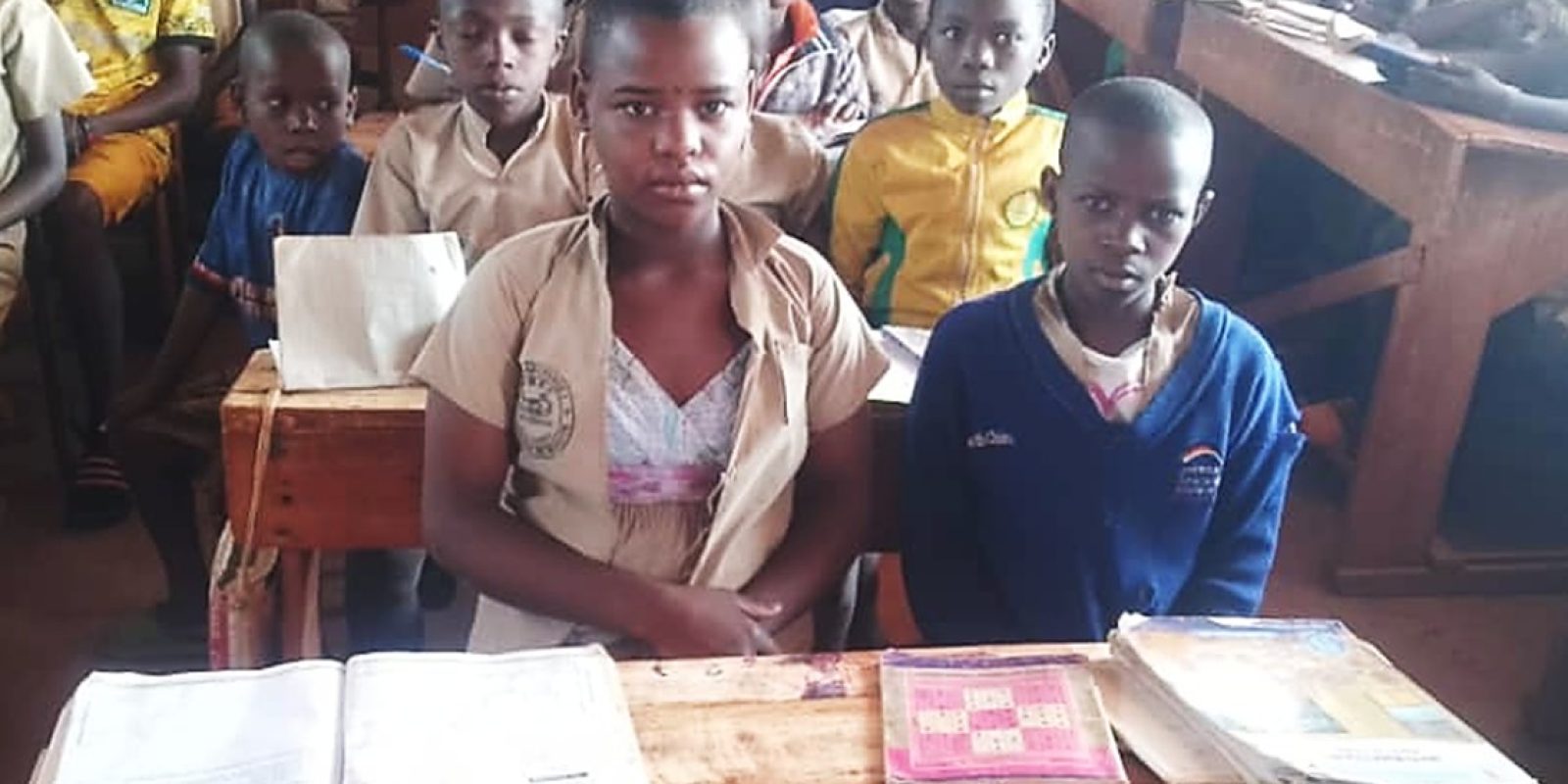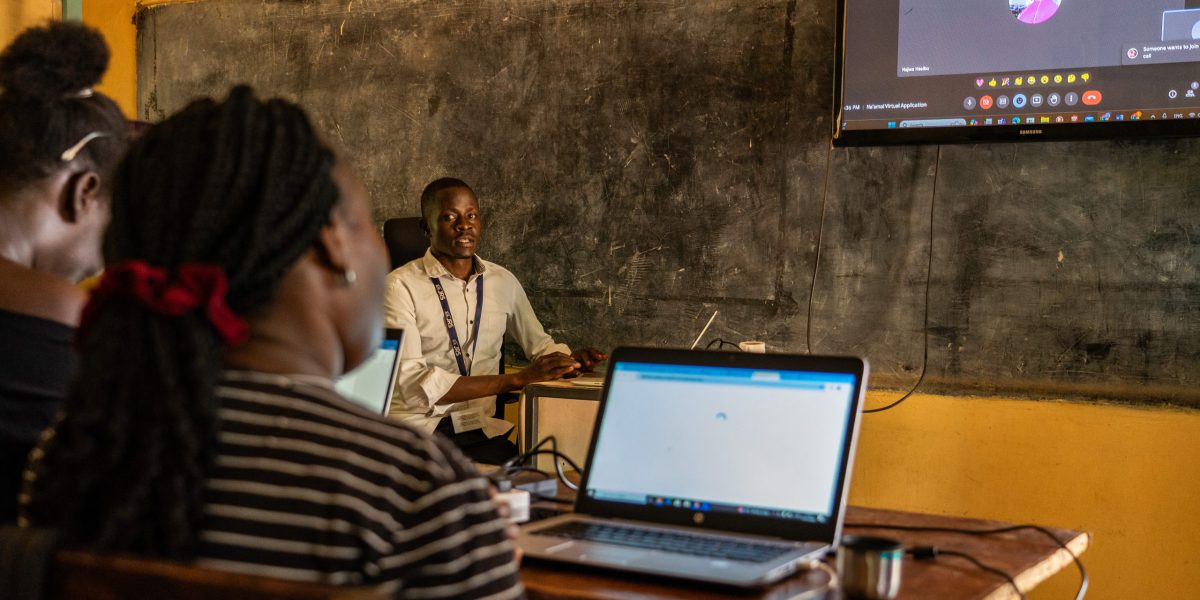
In the heart of Kakuma Refugee Camp, amidst scorching temperatures and limited internet access, Janet, a 20-year-old Burundian refugee, has found hope and opportunity through the Digital Inclusion Programme (DIP).
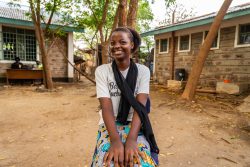
She arrived in Kakuma in 2021 with her family, following her father who was already awaiting for them in the camp. As a first born, Janet has taken on great responsibilities within her household, comprising 13 individuals, including four girls and seven boys. Despite the challenges, she has become a pillar of support, contributing financially to her family’s well-being. And this has been, in big part, thanks to the Digital Inclusion Programme she has taken part in, that open her a door of opportunity to access online work.
The DIP consists of a women-focused project aimed at teaching computer skills to refugee women in Kakuma Refugee Camp. The goal is to empower them through learning and connect them with income-generating activities that are not only inclusive and provide access to global job placements but also enable them to balance family and professional life. By working from their computers at home, mothers can take care of their children while generating income for their families.
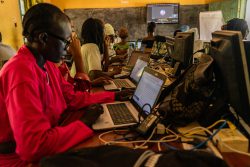
The project, possible thanks to the collaboration of JRS with Konexio, is simple but comprehensive at the same time: we enrolled a group of 33 women into a few-months digital learning process, we provided them with laptops, internet bundles and in some cases basic non-food and food items to support their basics needs, and we finalize by linking them with online job platforms. Students explain that, having enrolled into the program in April 2023, by September the same year they could already start carrying out retributed online job, like transcriptions, data analysis and other similar duties.
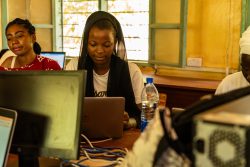
Like the case of Jane, whom having joined the programme in April 2023 as part of its inaugural cohort, she began her journey towards digital empowerment. By September of the same year, she had started monetizing her newly trained skills, delving into freelancing and online jobs.
Janet’s determination is evident in her words. Despite the challenges posed by Kakuma’s harsh climate and limited internet infrastructure, Janet’s perseverance shines through.
“I felt good; I am sharp, and I learned fast,” Janet
But Janet’s is not the only one. There are many other women who are now benefiting from the impacts of this innovative project. Margaret, a young South Sudanese of 26 years, also the firstborn and her family’s breadwinner, shared with us her experience.
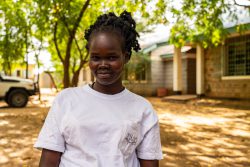
Coming from a family of 6, being born in Kakuma Refugee Camp, she explains she always knew about JRS “and the great work they have been doing for education in the camp”, she explains. Despite owning a small shop in the camp to support her family’s income, Margaret had always dreamt about having a job that she could do on a computer. She had always been passionate about it, but in the camp was very difficult for her to get a similar opportunity. For this reason, when a friend of hers knew about this new project of JRS and Konexio, she did not doubt it twice and shared it with Margaret.
She was thrilled when she was notified she had made it into the programme: her dream was becoming true!
Janet also had a different occupation before the DIP. Before joining the course, Janet balanced her studies with evening tailoring work to support her family. Now, with her enhanced skills and online opportunities, she can contribute even more significantly.
Looking towards the future, Janet dreams of returning to Burundi and continuing her online work from there. “I want to become someone important,” she shares.
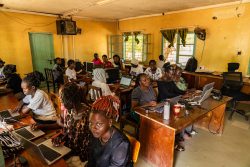
Janet recognizes the significance of such opportunities, particularly for women, as they enable them to reconcile work and family life by allowing them to work from home while caring for their children.
When asking Margaret why she thinks digital inclusion is important, she explains us that, specially women, in Africa, are though not to be able to carry out the so-called “men’s jobs”. And IT related jobs fall into that category. By enrolling women into DIP, we are not only empowering women and improving their financial independence, but helping to break a harmful stereotype widely spread in the region.
“Thanks to JRS and Konexio for helping us improve our lives,” Janet.
Janet’s message is also very clear: the impact of such programmes extends far beyond individuals like herself, reaching entire communities and transforming lives.
Her determination to succeed serves as an inspiration to all. “Please continue helping others,” she urges, knowing firsthand the transformative power of opportunities and support.
Janet and Margaret’s story are a testament to the resilience and potential of refugees, given the chance to thrive in an inclusive digital world.

